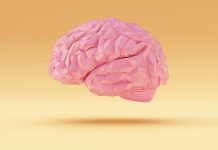
Have you ever been overwhelmed by clutter in your home, unable to let go of items that you no longer need? If this is an ongoing problem that affects your life, you may be dealing with hoarding disorder.
Hoarding disorder is more than just being messy or disorganized. It’s a mental health condition where people find it very hard to throw away or part with possessions, even if they have no value.
What Is Hoarding Disorder?
Hoarding disorder is classified as a mental health condition. It was added to the Diagnostic and Statistical Manual of Mental Disorders, fifth edition (DSM-5), in 2013.
Before that, it was considered a subtype of obsessive-compulsive disorder (OCD). However, research has shown that hoarding disorder has unique features that set it apart from OCD.
People with hoarding disorder tend to save items that they feel they might need in the future, have sentimental value, or that they find too beautiful or useful to throw away.
Over time, the number of these saved items can grow to a point where they can take over the person’s living space, making it hard to use rooms for their intended purpose.
For instance, they may be unable to cook in their kitchen or sleep in their bed because these areas are filled with items.
Signs and Symptoms
The signs of hoarding disorder often involve more than just a messy home. Some common signs include:
- Difficulty throwing away items
- Severe anxiety when attempting to discard items
- Trouble organizing items, often resulting in clutter
- Indecision about what to keep or where to put things
- Distress, such as feeling overwhelmed or embarrassed by possessions
- Suspicion of other people touching items
- Obsessive thoughts and actions, like fear of running out of an item or needing it in the future
- Functional impairments, like loss of living space, social isolation, family or marital discord, financial difficulties, health hazards
Research Evidence
Studies show that hoarding disorder affects up to 6% of the population. It’s a condition that can start as early as the teenage years and worsens with age. Research also suggests that hoarding disorder may be more common in males than females.
A study in the American Journal of Psychiatry found that people with hoarding disorder often have a history of trauma or significant life events.
These events may trigger the symptoms of hoarding disorder. For example, the loss of a loved one might lead to the fear of losing items or the need to hold onto things that remind the person of their loved one.
Moreover, studies have also found that hoarding disorder can be linked to other mental health conditions like depression, anxiety, and attention deficit hyperactivity disorder (ADHD).
This suggests that hoarding is not just about an inability to throw away items, but also about deeper psychological issues that need to be addressed.
Seeking Help
If you or a loved one is struggling with hoarding disorder, it’s important to seek help. Therapy, specifically cognitive-behavioral therapy (CBT), has been shown to be effective in helping people with hoarding disorder.
CBT helps people understand why they feel the need to hoard and teaches them how to make decisions about what to keep and what to throw away.
It also helps them to improve their organization skills and reduce their hoarding behavior.
If the person also has another mental health condition like depression or anxiety, treating these conditions can also help reduce hoarding behavior. This could involve therapy, medication, or a combination of both.
Remember, hoarding disorder is a mental health condition. It’s not about laziness or a lack of cleanliness. If you’re struggling with hoarding, it’s important to seek help and understand that you’re not alone.
With the right help and support, people with hoarding disorder can learn to control their symptoms and live a healthier and happier life.
If you care about depression, please read studies about vegetarianism linked to a higher risk of depression, and Vitamin D could help reduce depression symptoms.
For more information about mental health, please see recent studies that ultra-processed foods may make you feel depressed, and these antioxidants could help reduce the risk of dementia.
Follow us on Twitter for more articles about this topic.
Copyright © 2023 Knowridge Science Report. All rights reserved.



